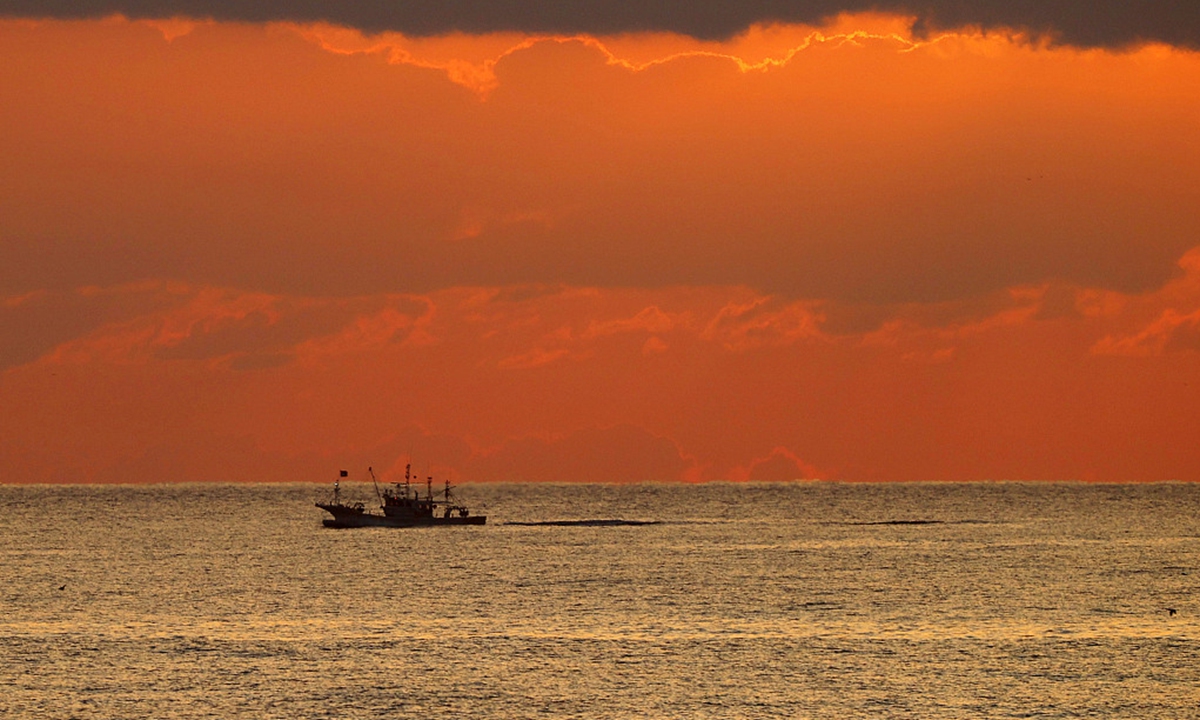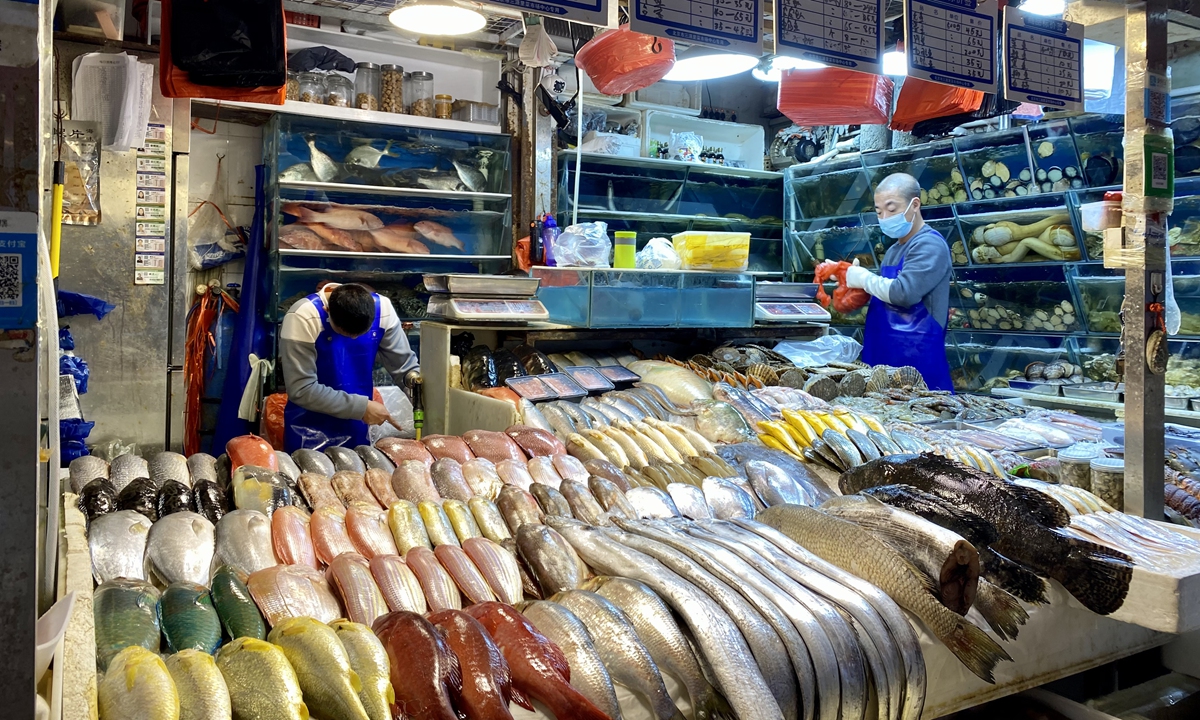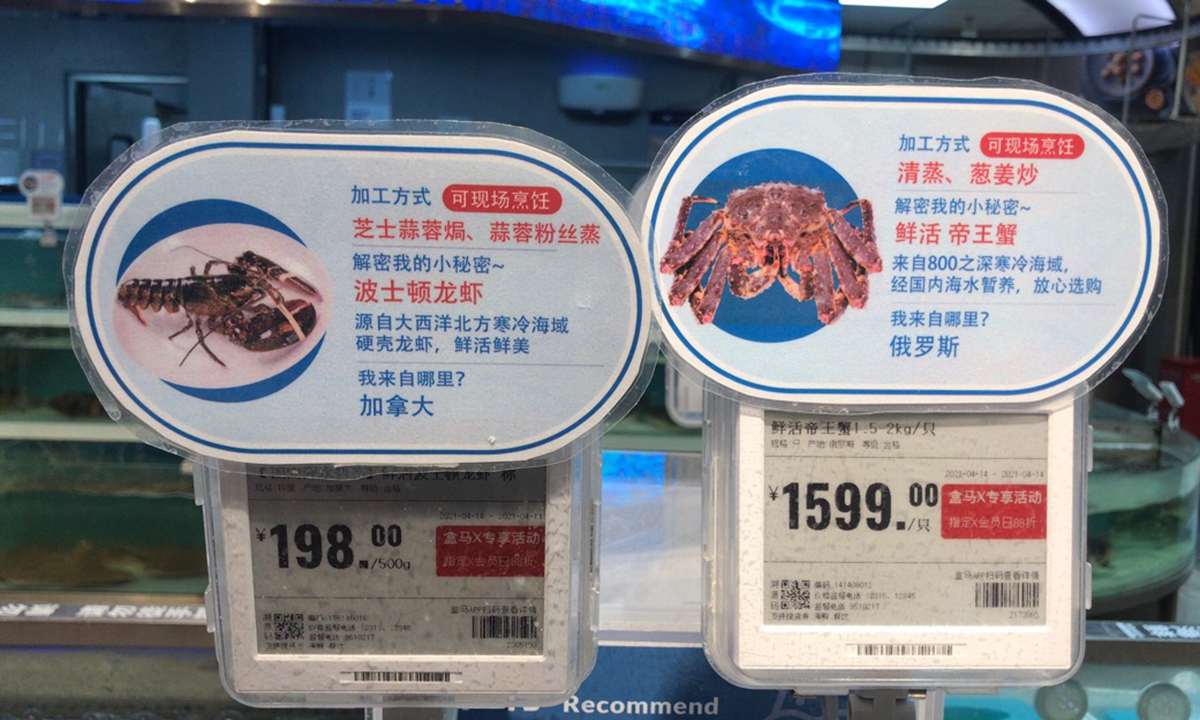
Photo: VCG
Concerns over food safety are rising among China's seafood consumers, following Japan's decision to dump radioactive water from its disaster-stricken nuclear complex in Fukushima Prefecture into the ocean. Seafood sourced not only from Japan, but also around the Pacific Ocean, including Canada and some of China's coastal areas, are among the top concerns.An employee of fresh-food chain Hema Fresh told the Global Times on Wednesday that enquiries have been rising over the past few days about the potential effects from Japan's radioactive water on their seafood products. However, the supermarket has not yet made any adjustment to its purchasing plans, including products from the Yellow Sea bordering the Sea of Japan.

Seafood for sale at Sanyuanli market in Beijing's Chaoyang district on Wednesday Photo: Zhang Dan/GT
"Currently we don't have products imported directly from Japan," the employee said, "but customers have been approaching us asking if imports from Canada and domestic products from East China's Shandong Province will be contaminated."Although Japan's plan is to dump the wastewater in the next two years, some participants in the seafood business are already fearing adverse effects on their business.
"If Japan really releases nuclear wastewater it would be devastating for the whole industry. I am so worried about my job now," a receptionist at a Japanese restaurant in Shanghai told the Global Times on Wednesday.
He said only some grilled fish at their restaurant is imported from Japan and the rest such as sashimi and oysters are imported from Norway and France.
Seafood imports account for only a small amount of seafood consumption in China. But importers, restaurant owners and sales people are worried that the seafood market is too fragile to take another hit from plunging consumer confidence.

Product labels show seafood imported from Canada and Russia in Hema Fresh supermarket on Wednesday. Photo: Yang Kunyi/GT
In Beijing's bustling Sanyuanli market, several seafood vendors told the Global Times that they are already worried."The coronavirus outbreak in Beijing last year was a big blow for us. The seafood industry has been recovering, but Japan's decision to dump the nuclear wastewater into the ocean gave the industry a new blow," said a seafood seller at the market.
Another vendor at the market named Gan told the Global Times that his store only imports seafood from Norway, New Zealand and Canada. No-one has expressed concerns so far, Gan said, but there is still uncertainty over the future of the seafood market.
As a precautionary measure, China halted imports of seafood from several Japanese prefectures including Fukushima back in 2011. According to a customs insider, the ban is still in place, but so far China has not implemented any process to detect radioactive contamination on imported products.
Hong Liu, a Shanghai-based customer who was selecting sushi in a supermarket told the Global Times on Wednesday that he is worried about the wastewater and will not buy seafood from Japan in the future. "I am worried that the safety will fall below the accepted standard," he said.
